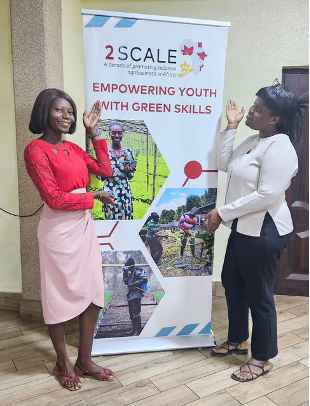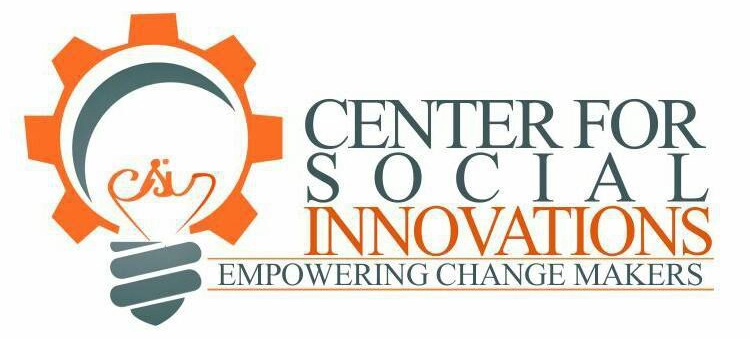Inclusive Business (IB) is reshaping the entrepreneurial landscape, offering a sustainable model that integrates low-income communities into the heart of business operations. The Ghana Chamber of Young Entrepreneurs (GCYE), in partnership with 2SCALE, recently hosted a transformative 3-day Inclusive Business training in Ghana, designed to equip entrepreneurs with the tools to build impactful, profitable enterprises.

Understanding Inclusive Business
Inclusive Business is a strategic approach where businesses engage low-income communities often referred to as the Base of the Pyramid (BoP) as suppliers, distributors, retailers, or consumers. Unlike traditional charity models, IB focuses on creating shared value: businesses gain access to new markets, resources, and talent, while communities benefit from jobs, skills development, and affordable products. This win-win model aligns profitability with social impact, making it a powerful tool for sustainable development.
The training highlighted why Ghana is a fertile ground for IB. With a vibrant economy driven by agriculture, manufacturing, and services, the country offers immense opportunities for inclusive sectors. Key areas include:
- Agriculture: Engaging smallholder farmers in cocoa, shea, poultry or vegetable supply chains.
- Agro-processing: Transforming raw produce into value-added products like packaged foods.
- Renewable Energy: Providing affordable solar solutions for rural households.
- Retail: Distributing fast-moving consumer goods tailored to BoP needs.
These sectors address pressing challenges like poverty and unemployment while tapping into Ghana’s growing market potential.

Core Principles of Inclusive Business
The training outlined three foundational principles that define successful IB models:
- Mutuality: Ensuring benefits are shared between businesses and BoP communities, fostering trust and long-term partnerships.
- Scalability: Designing models that can grow without compromising impact or viability.
- Innovation: Adapting products, services, and processes to meet the unique needs of low-income markets.
These principles guide businesses in creating sustainable, inclusive value chains that drive economic and social progress.
Why Inclusive Business is a Smart Strategy
Adopting an IB approach is not just ethical ; it’s a strategic move in today’s global economy. Here’s why:
- Market Access: The BoP represents a $5 trillion global market, offering untapped opportunities for growth.
- Resilience: Inclusive models diversify supply chains and customer bases, reducing risks from market volatility.
- Brand Loyalty: Consumers increasingly value ethical practices, and IB builds trust and loyalty among stakeholders.
- Social Impact: By creating jobs and improving livelihoods, IB contributes to the Sustainable Development Goals, enhancing a company’s reputation.
In Ghana, where over 60% of the population is under 25, IB can empower youth and women, driving inclusive economic growth.
Engaging the Base of the Pyramid
A key focus of the training was how to integrate the BoP into various stages of the value chain:
- As Suppliers: Partnering with small-scale farmers or artisans to source raw materials, providing them with training, fair prices, and market access. For example, shea butter producers in northern Ghana can become reliable suppliers for global cosmetic brands.
- As Distributors and Retailers: Empowering local entrepreneurs, particularly women and youth, to distribute products in rural or underserved areas. Micro-franchise models, like those used for solar lamps, are a prime example.
- As Customers/Consumers: Designing affordable, high-quality products tailored to BoP needs, such as low-cost nutritional foods or mobile-based financial services.
Real-world examples, like Unilever’s inclusive sourcing initiatives and 2SCALE’s work with African agribusinesses, illustrated how these strategies create impact at scale.
Looking Ahead: Why This Matters for Entrepreneurs
The GCYE and 2SCALE training underscored that Inclusive Business is more than a buzzword; it’s a blueprint for building resilient, impactful enterprises. For entrepreneurs in Ghana and beyond, IB offers a pathway to align profitability with purpose. By engaging the BoP, businesses can unlock new markets, foster innovation, and contribute to a more equitable society.
Interested in exploring Inclusive Business? Look into implementable IB projects by the Centre for Social Innovations Ghana to learn how you can integrate IB into your venture. Share your thoughts on how IB can transform entrepreneurship in the comments below!
By Mary Offei : Digital Literacy Associate
